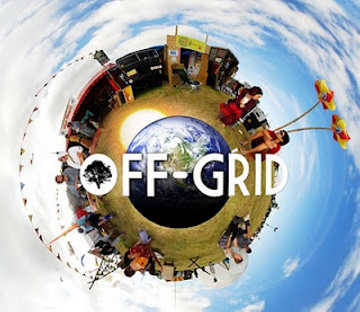 Ideally, off-grid living hands you the tools and knowledge to produce and manage your own electrical, water, and waste needs in the name of sustainability, economics, anonymity, and true independence.
Ideally, off-grid living hands you the tools and knowledge to produce and manage your own electrical, water, and waste needs in the name of sustainability, economics, anonymity, and true independence.
Here’s a beginner’s guide to simple steps you can take to start an off-grid lifestyle, even if you live in a city!
THE BREAKDOWN:
WASTE
Municipal waste systems, such as garbage and recycling programs, can be costly and, ironically, damaging to the environment. You can reduce your reliance on these programs (and in some states, even your garbage bill) by taking on a simple project for the beginner off-gridder:
COMPOSTING. No outdoor space? That’s okay, you can use make your own indoor vermicompost bin for less than $5 in less than 30 minutes! Visit this YouTube film.
As the video shows you, the “soil” (castings) you are left with can go directly to outdoor garden spaces. If you don’thave a yard, try looking up a neighborhood garden project! Most will be happy to accept your nutrient-rich donation. We do not recommend using compost soil for potted plants as it tends to be a little high in microbes for potted plants liking.
WATER. Everyone needs water. We use it to drink, cook, wash, and feed the beautiful greenery around us. Many off-gridders integrate a variety of water collection systems into their homes and land, including independent well drilling, rain-water harvesting, and grey water systems. An advantage to securing your own water supply is that it puts you more closely in touch with your needs and with the cycles of nature. Consequently, you are better able to reduce unnecessary waste and reuse water where possible.
A low-cost and relatively easy beginner project for those interested in lessening their dependence on the grid for water is rainwater harvesting. You don’t want to drink the rainwater you collect unless highly filtered, but you can use it to water your garden or potted plants, do the washing, flush your toilets and even cooking. There are many great companies out there where you can purchase premade setups of varying levels of sophistication. Please consult here for links and information on state regulations. Systems are easy to establish and will be significantly cheaper to do on your own than through a supplier. A quick and dirty overview can be found here
ELECTRICITY. In place of standard electrical lines, off-gridders instead rely on wind or hydro or solar power. Not only is harvesting your own electricity more environmentally friendly, it is often significantly less expensive and also means that you can avoid having your energy usage communicated to corporate and municipal energy companies.
Off-grid electrical systems tend to require a relatively large initial financial commitment, but the savings in cost and peace of mind will offset this initial investment. Despite spacial constraints, apartment dwellers are now exploring off-grid electricityoptions, as well. Watch these videos below for instructions on how to set up a solar energypack for your apartment or city home.
Part 1: https://www.youtube.com/watch?v=-c81cECD9zw
Part 2: https://www.youtube.com/watch?v=v4NZC1T5itk&feature=related
The transition to off-grid living can often seem a little daunting. However, if you start small,build up your knowledge through doing and get a little creative, the benefits from your new, independent life will make you question why you even waited this long.
Let us know what you think and how you first began your journey to the off-grid life!
5 Responses
Hello , I’m new to this site very glad to have found it. I’m about to start my off-grid journey, let me tell you its a little scary but im ready. Just purchased a piece of land in Ash Fork Az. Off-Grid land, a water haul area. My son purchased there last year its still a work in progress but loves it he up in Kaibab knolls subdivision. My only worry is installing septic system, haven’t priced yet will be in a 38ft trailor fulltime witch is allowed but must install septic. well life is to short to have fear. wish me luck
Hi! This is my first time on the site and have to say OVERJOYED I’ve found it. Been trying to do what I can to go OTG but mostly playing the “recycling dictator” in my home… not super effective :) But this article has renewed my spirit! It is overwhelming, but these beginner tips are perfect. Thank you!
Having lived in a house (in NZ) where the only water came from a rainwater tank on the roof I can say that all mum did was to use a tea strainer (to remove dead insects etc.) and then boil it before drinking. We were never ill, but boiling first is essential.
I agree Solarbum, that was my original mistake. Thank you for the article. I fully plan to put these simple steps into affect immediately. Can’t wait to start!
Great article Mo! I think the mistake that far too many folks make is thinking they need to do it all at once, but as you point out, going off the grid can be done in stages.